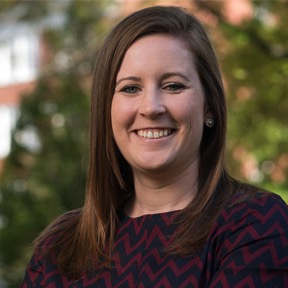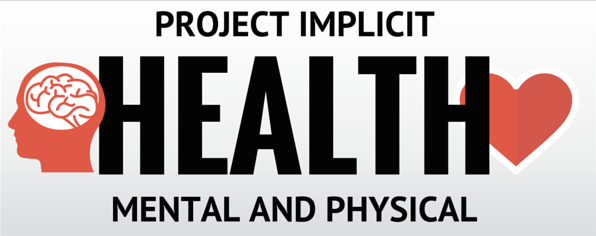The Scientists
Bethany Teachman
 Bethany Teachman is an associate professor at the University of
Virginia in the Department of Psychology. She received her Ph.D. from
Yale University and B.A. from the University of British Columbia. Her
research focuses on biases in cognitive processing that contribute to
the development and maintenance of anxiety disorders, with a
particular interest in investigating how automatic cognitive processes
can be modified. Dr. Teachman is also a licensed clinical
psychologist who specializes in cognitive behavior therapy, and she is
an author on over 50 publications, including the books Treatment
Planning in Psychotherapy: Taking the Guesswork Out of Clinical Care
(2002, Guilford Press) and Helping your child overcome an eating
disorder: What you can do at home (2003, New Harbinger). She is an
associate editor for the journal Cognition and Emotion, and won the
2007 Early Career Award from the Association for Behavioral and
Cognitive Therapies (from the Anxiety SIG).
Bethany Teachman is an associate professor at the University of
Virginia in the Department of Psychology. She received her Ph.D. from
Yale University and B.A. from the University of British Columbia. Her
research focuses on biases in cognitive processing that contribute to
the development and maintenance of anxiety disorders, with a
particular interest in investigating how automatic cognitive processes
can be modified. Dr. Teachman is also a licensed clinical
psychologist who specializes in cognitive behavior therapy, and she is
an author on over 50 publications, including the books Treatment
Planning in Psychotherapy: Taking the Guesswork Out of Clinical Care
(2002, Guilford Press) and Helping your child overcome an eating
disorder: What you can do at home (2003, New Harbinger). She is an
associate editor for the journal Cognition and Emotion, and won the
2007 Early Career Award from the Association for Behavioral and
Cognitive Therapies (from the Anxiety SIG).
Brian Nosek
 Brian Nosek received a Ph.D. in from Yale University in 2002 and is an associate professor in the Department of Psychology at the University of Virginia. In 2007, he received early career awards from the International Social Cognition Network (ISCON) and the Society for the Psychological Study of Social Issues (SPSSI). He directs Project Implicit an Internet-based multi-university collaboration of research and education about implicit cognition – thoughts and feelings that exist outside of awareness or control. Nosek’s research interests include implicit cognition, automaticity, social judgment, attitudes and beliefs, ideology, morality, identity, memory, and the interface between theory, methods, and innovation.
Brian Nosek received a Ph.D. in from Yale University in 2002 and is an associate professor in the Department of Psychology at the University of Virginia. In 2007, he received early career awards from the International Social Cognition Network (ISCON) and the Society for the Psychological Study of Social Issues (SPSSI). He directs Project Implicit an Internet-based multi-university collaboration of research and education about implicit cognition – thoughts and feelings that exist outside of awareness or control. Nosek’s research interests include implicit cognition, automaticity, social judgment, attitudes and beliefs, ideology, morality, identity, memory, and the interface between theory, methods, and innovation.
Tony Greenwald
 Anthony G. Greenwald received his BA from Yale and PhD from Harvard and has been Professor of Psychology at University of Washington since 1986. He has published over 180 scholarly articles and chapters, mostly on topics in social and cognitive psychology, authored or edited five books, and served on editorial boards of 13 psychological journals. In 1995 Greenwald invented the Implicit Association Test (IAT), which rapidly became a worldwide standard for assessing implicit attitudes, stereotypes, and self-concepts. He has been President of the non-profit organization, Project Implicit, since its inception in 2005. Recognitions for his research include the Donald T. Campbell Award from the Society of Personality and Social Psychology, the Distinguished Scientist Award from the Society of Experimental Social Psychology, and election to membership in the American Academy of Arts and Sciences.
Anthony G. Greenwald received his BA from Yale and PhD from Harvard and has been Professor of Psychology at University of Washington since 1986. He has published over 180 scholarly articles and chapters, mostly on topics in social and cognitive psychology, authored or edited five books, and served on editorial boards of 13 psychological journals. In 1995 Greenwald invented the Implicit Association Test (IAT), which rapidly became a worldwide standard for assessing implicit attitudes, stereotypes, and self-concepts. He has been President of the non-profit organization, Project Implicit, since its inception in 2005. Recognitions for his research include the Donald T. Campbell Award from the Society of Personality and Social Psychology, the Distinguished Scientist Award from the Society of Experimental Social Psychology, and election to membership in the American Academy of Arts and Sciences.
Matthew Nock
 Matthew K. Nock, Ph.D. is a Professor of Psychology at Harvard University. He received his Ph.D. from Yale University and his B.A. from Boston University. Nock's research is aimed at advancing the understanding why people behave in ways that are harmful to themselves, with an emphasis on suicide and other forms of self-harm. His work is funded by grants from the National Institutes of Health and several private foundations, has been published in over 100 scientific papers and book chapters, and
has been recognized through the receipt of early career awards from the American Psychological Association, the Association for Behavioral and Cognitive Therapies, and the American Association of Suicidology. At Harvard, Nock teaches courses on statistics, research methods, self-destructive behaviors, developmental psychopathology, and cultural diversity - for which he has received several teaching awards including the Roslyn Abramson Teaching Award and the Petra Shattuck Prize.
Matthew K. Nock, Ph.D. is a Professor of Psychology at Harvard University. He received his Ph.D. from Yale University and his B.A. from Boston University. Nock's research is aimed at advancing the understanding why people behave in ways that are harmful to themselves, with an emphasis on suicide and other forms of self-harm. His work is funded by grants from the National Institutes of Health and several private foundations, has been published in over 100 scientific papers and book chapters, and
has been recognized through the receipt of early career awards from the American Psychological Association, the Association for Behavioral and Cognitive Therapies, and the American Association of Suicidology. At Harvard, Nock teaches courses on statistics, research methods, self-destructive behaviors, developmental psychopathology, and cultural diversity - for which he has received several teaching awards including the Roslyn Abramson Teaching Award and the Petra Shattuck Prize.
Jennifer Howell
 Jennifer Howell is an assistant professor at Ohio University in the Department of Psychology. She received her Ph.D. in Social Psychology from the University of Florida in Gainesville, FL (2015) and her B.A. in Psychology from Southwestern University in Georgetown, Texas (2009). Her research focuses broadly on how people manage psychological threats, with a particular interest in health decision-making and behavior. Her primary line of research has investigated whether or not people want to know information about their health. She is the author of over 30 peer-reviewed articles and book chapters.
Jennifer Howell is an assistant professor at Ohio University in the Department of Psychology. She received her Ph.D. in Social Psychology from the University of Florida in Gainesville, FL (2015) and her B.A. in Psychology from Southwestern University in Georgetown, Texas (2009). Her research focuses broadly on how people manage psychological threats, with a particular interest in health decision-making and behavior. Her primary line of research has investigated whether or not people want to know information about their health. She is the author of over 30 peer-reviewed articles and book chapters.
